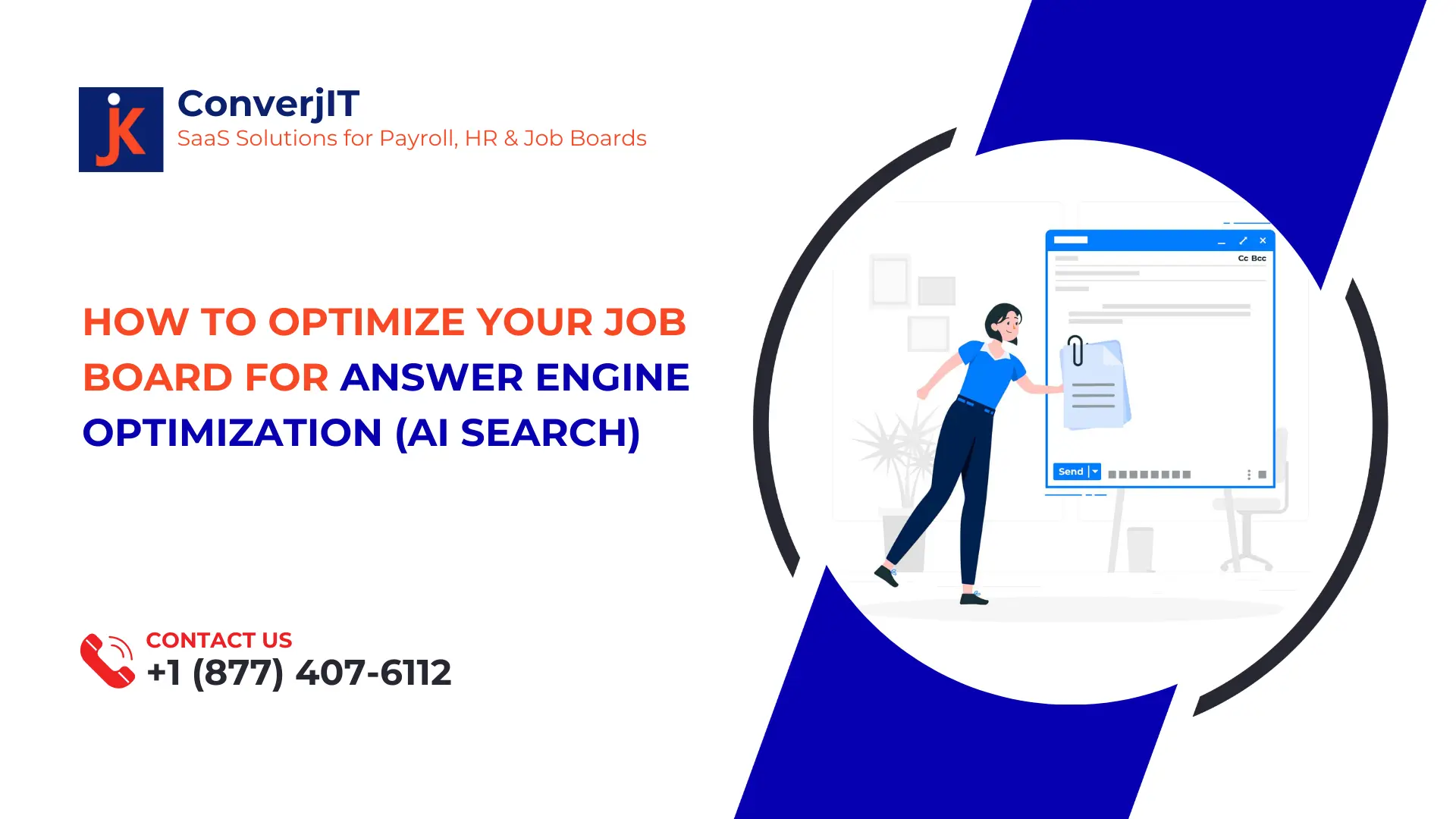Job boards have transformed a lot since the days of newspaper ads. We’ve seen models evolve through the years, expanding from one-time job postings, bundled credits, and ATS feeds to automated posting, PPC ads, subscriptions, and job slots. Today, the market is broken up, and many boards are still having difficulties with old or expired postings, inconsistencies in data, and manual processes. This is where job scraping tools come in. They assist recruitment platforms simplify, make sure they’re trustworthy, and grow.
What Are Job Scraping Tools?
Job scraping tools are applications that scrape job postings from employer websites, career sites, and job boards. They capture job openings in formats like XML, JSON, and or API-ready feeds, which makes it effortless for integration with job boards. Scraping is only half the story when it comes to acquiring jobs. Raw data often has gaps that need to be covered in and structured before it can be useful.
Why Job Boards Need Job Scraping Tools
1. Access to Fresh and Real-Time Job Data
Job boards thrive on current listings. Scraping eliminates delays and ensures data is updated regularly. However, “real-time” depends on your board’s publishing infrastructure—many update only once daily, so extra costs for instant feeds may not add real value.
2. Structured & Enriched Job Data
Raw scraped data is messy, with broken HTML and missing fields. Scraping tools structure and enrich postings with standardized titles, salaries, skills, and locations, making listings more searchable and reliable.
3. Cost-Effective Scaling
Building partnerships or waiting on ATS feeds is slow and expensive. Scraping enables faster setup, ideal for niche job boards and startups. Outsourcing scraping to a provider is also more efficient than building DIY scrapers in-house.
4. Improved Candidate Experience
Structured, enriched postings improve search filters and categorization, helping candidates find the right jobs quickly. A clean and accurate listing builds trust and engagement.
5. Competitive Edge
By aggregating from multiple sources, smaller job boards can compete with giants like LinkedIn or Indeed. A robust scraping setup allows them to serve more complete and relevant listings to their audience.
6. Enhanced Employer Experience
Remove the burden of manually reposting jobs that are already on their ATS/career page, with scraping. Unlock larger customers, with significant job pools.
Key Benefits of Job Scraping Tools for Job Boards
1. Access to Consistently Updated Listings
Scraping tools make sure that job boards always show the most recent openings, which builds trust in candidates by keeping them from seeing old or expired postings.
2. Enhanced Data Accuracy
Automated scraping gets all the information, such as salary, location, and job type, which lowers the number of mistakes and makes search results better for people looking for jobs. Changes made to posts at their original source after they have been posted will also be reflected on your site.
3. Faster Time-to-Market
By scraping significant job postings, job portals can quickly add new categories or enter new niche job board business without depending on complex 3rd party tools or technology integration that can take weeks or even months.
4. Improved Candidate Search Experience
Candidates can find jobs that match their skills and career goals more quickly by using structured job data. Custom job feeds from scraping tools, makes sorting and filtering jobs easier.
5. Competitive Advantage in Niche Markets
Smaller or niche job boards can compete with bigger job portals or platforms by providing specialized, in-depth job listings through the use of intelligent data scraping.
6. Reduced Dependence on Aggregators
Job boards can lower costs and have more control over the quality and timeliness of job data by relying less on outside aggregators.
7. Seamless Multi-Region Expansion
Scraping with support for multiple languages and locations lets boards grow around the world and reach a wide range of audiences without having to collect data by hand.
8. Lower Operational Costs
Job Scraping tools cut down on the amount of work that has to be done by hand by automating the collection of data that has to be done over and over again. This lets teams focus on marketing, partnerships, and user growth.
9. Flexible Data Delivery Formats
Most scraping services give you outputs in JSON, XML, or API format, which makes it easy to connect them to your current platforms, ATS, or CRM systems.
10. Scalable Growth Support
Scraping tools can handle hundreds to hundreds of thousands of posts, and they do so without losing quality or performance.
Common Use Cases
Niche Job Boards
Healthcare, IT, and energy-focused job boards use scraping tools to source specialized openings, ensuring targeted, high-quality listings that attract professionals within their specific industries.
Recruitment Agencies
In order to streamline operations and structured job feeds, standardized XML files or API data for easy distribution and employee matching, staffing firms utilize job scraping tools to assemble and conceal job postings from multiple clients.
Global Job Boards
Multi-region and multi-language scraping tools help international platforms acquire a range of job information while easily connecting with audiences around all over the globe.
Challenges Without Job Scraping Tools
Without scraping automation, job boards risk publishing outdated jobs, missing fields like salary or location, and spending hours on manual uploads. The result? Frustrated users and poor candidate engagement.
Choosing the Right Job Scraping Service
When evaluating providers, consider:
Speed and Scalability
Select a job scraping service that can grow with your job board business, handling thousands of job listings every day without compromising accuracy or performance, and delivering job data fast.
Data Quality and Enrichment
High-quality jobs data scraping assures that your job board delivers insightful, searchable job postings by offering structured, enhanced job feed with complete fields like location, skills, and salary.
Customization Options
Every job board comes with distinct specifications. Seek out organizations that provide customized job posting scraping solutions that are compatible with your target industries, niche, and preferred job board database formats.
API and Integration Support
Integration must go smoothly. Choose web scraping services that offer outputs that are API-ready so that connecting to your ATS or job board has become easy to do.
Cost-Effectiveness
Balance affordability with reliability. An economically priced job scraping solution delivers reliable, accurate, and adjustable job data delivery for your job board portal while reducing operating expenses.
Conclusion
Modern job boards can’t thrive on manual processes or outdated feeds. Job scraping tools deliver fresh, structured, and scalable data that powers better experiences for candidates and recruiters alike. For niche boards especially, adopting automated solutions is no longer optional—it’s essential to stay competitive.




